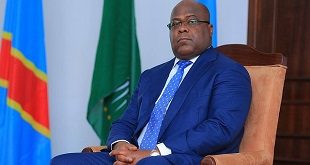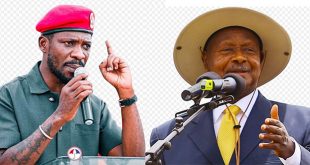If government demonstrated its commitment to its own reforms CDC would extend the concession to seven years. The World Bank offered money on an escrow so that if government did not pay its bills, CDC would pay itself. But CDC was not convinced and to share the risk invited Eskom of South Africa as a partner. Umeme was born.
Because of these risks and Uganda’s national risk profile, Umeme negotiated a rate of return of 20% on its dollar investments. In the first five years, government violated many of the terms of the agreement. I will not go into the details but Umeme did not leave. Slowly it built a robust business on our distribution network. When it decided to list on the stock exchange in 2012 and 2017, investors flocked to Uganda to get a piece of the Umeme pie. A business that companies were not willing to take for free in 2001 was now attracting vast sums of investor money. Some of the world’s leading equity funds with over $1.6 trillion worth of investible cash were kneeling to buy its shares. It was oversubscribed by 63%.
Because of this public listing, today 36% of Umeme is owned by Ugandans, of whom 23% are workers saving with NSSF. Given the president’s interest in East African integration, it is important to also add that 55% of Umeme is owned by East Africans. Therefore, a significant share of the high returns to Umeme actually go to the people of Uganda and their cousins in East Africa. This is not to say that the Umeme concession did not have weaknesses. However most of these were a result of the weak negotiating position Uganda occupied at the time, not a result of incompetence or corrupt intent as the president and some Ugandan elites claim.
Under the first concession agreement, Umeme was supposed to have reduced electricity losses from 38 percent to 28 percent in the first seven years of the concession. They reduced them to 24 percent. They were supposed to have invested US$65 million in the first seven years; they invested $130 million. They were supposed to make 60,000 new connections in the first seven years; they made 220,000 connections. They were supposed to increase collection of revenue from 75 percent to 95 percent; they reached 98 percent. It is on this basis that the concession was renewed.
As I write this article in May 2021, total losses have fallen to 17.5% compared to Kenya 23% up from 17% seven years ago, Tanzania above 30%. They have invested $700 million in the network, increased connections from 250,000 to 1.5 million, revenue collections are 99.9%, with total revenues of Shs1.7 trillion, with their assets now at Shs2.6 billion. And it employs 1,600 direct employees and 900 contractors. Now they have more than 14,000 transformers, 44,000 km of lines. And the company relies on local staff – with only five expatriates out of over 2,000 employees.
In a 2015 World Bank review of the electricity sector in Africa, it was found that only Uganda’s tariff covers the costs of capital investment and operation expenses and makes a profit. The second country was Seychelles which was breaking even. Across the entire continent all other nations of Africa make losses and have to subsidise their power to citizens and businesses. At the heart of Uganda’s success in the electricity market has been Umeme. It is, therefore, saddening that the president continues to listen to people who do not understand how far he has succeeded in reforming Uganda’s electricity sector, making it a star and an example in the whole of Africa.
****
 The Independent Uganda: You get the Truth we Pay the Price
The Independent Uganda: You get the Truth we Pay the Price



So, the government of Uganda no longer subsidises on electricity?
You still haven’t explained Museveni’s hostility towards Umeme.
I agree with you, I haven’t seen that part too
If you have lived here long enough it is easy to notice that Uganda’s economic mismanagement is built on well crafted economic lies. This article has reminded me of the early days of our economic reform. A one Doctor. Frank Maine was heading the largest banking network in the region. I still recall his shrill voice on the radio and the whispers from eminent cadres of that time. The utility sector in Uganda is water and electricity are anti economic growth. For a country where water treatment is minimal, the price of water is outrageous. The taxes and service fees on both utilities is unthinkable . I have stated it before if the president had any patriotism left in him , waiving the taxes is not beyond his executive powers.
Thanks
Andrew, be reminded that the presidents point of contention is the price of electricity. With all these dams being build and some complete why is price of electricity still so high. This is one way of stifling investment especially industrial investment. Why are we still experience load shedding in this age and time. I leave in an area where we are loadshedded at least once a week n yet we more of less in the middle of town. Why? Its really baffling. N then u have this charge of 3900 of every unit purchase every month…..why do we incurr this monthly charge? And then you hv this huge compensation claim awaiting umeme if the concession is terminated. There alot of issues that the president raises for which u have not tried to explained giving the impression that this was a paid for article by umeme.
Lastly, are u are there alot of areas in this country that still don’t access to power, despite the so-called massive investment by umeme. Try looking at the North of Uganda, you’ll be surprised. This gives the impression that $130m umeme investment is inflated.
Typo error. The guy was Dr Frank Mwine and that magic of financial deepening in Uganda commercial bank. Attractive bank loans at 33 percent because of our risk profile!
If a private citizen called Andrew Mwenda knows all this about UMEME, how come the President with the Government machinery and over 100 Presidential Advisors at his disposal doesn’t?!
I do appreciate Mwendwa’s voice for the voiceless, notwithstanding his article being informative for us all concerned & uninformed.
What’s the way forward? I personally applied & paid the standard rates for new connection year ago, nearer to a pole. As a senior citizen, retired, l have been depressed for living in total darkness for more than a year at such a time of Covidveffects. No news, no communication since l can’t charge to listen to at least newsbon my wireless radio.
I take this opportunity to ask the concerned persons to come to my rescue. I have an UMEME new account & need my house connected. I will be grateful if they come to my rescue, along kasangati-matugga rd
Article has part 2? Looks incomplete
1.The President knows a thing or two about being embarrassed before the big boys.Now that the country has made tremendous Economic achievements;he now has the guts of talking back at them which is natural.
2.With Capitalism its all about making profits at all costs.
3.With the disorganized infrastructure and the unclear Land ownership; the cost of installing power lines is definitely not cheap.If anything the citizens should donate part of their land for construction of power lines;If in the past Kabaka could donate land for social services what is difficult with donating just a few metres of your land for power lines to pass?
4. Honestly when you compare the amount of fuel Ugandans happily put in their cars and the YAKA they pay which one is more costly?
5.Why do Ugandans feel that power should be cheap?(i)The turbines have to be maintained;(ii)There is wear and tear of equipment,(iii)Whether there is one person on the grind;the cost of maintenance remains the same.
6.It is costly to terminate contacts that are long term and were guaranteed.
7.What will happen to the big share holders in UMEME like Newvison,NSSF?
Mwenda is missing a point of his headline.
On the other we all agree Uganda wanted an expert to revamp the board but not meme caliber.
The president this time is right.
The population is poor small scale production is not favoured.
Investment in production also.
Domestic consumption is running away from power consumption.
Let us have an element of improving standards of living.
Through cheap production as a results of cheaper power.
Thank you.